Find Help
More Items From Ergsy search
-
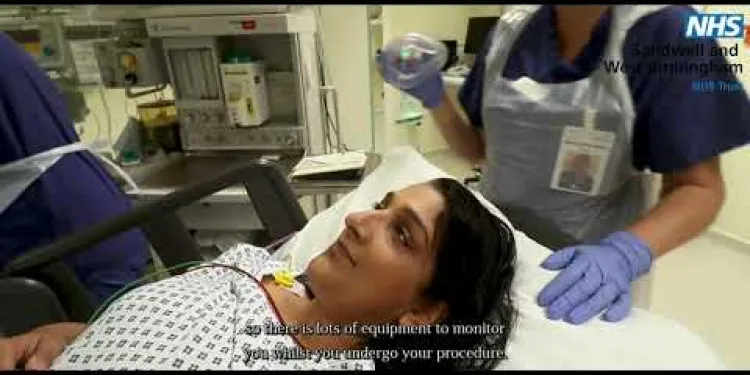
What to expect when visiting our hospitals for surgery | Theatres
Relevance: 100%
-
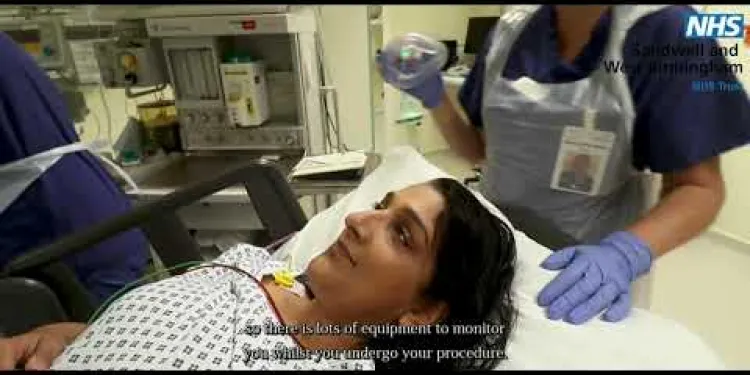
What to expect when visiting our hospitals for surgery | Theatres
Relevance: 99%
-
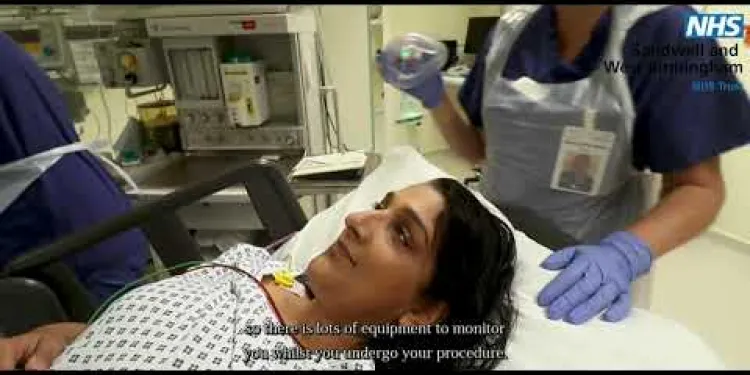
What to expect when visiting our hospitals for surgery | Theatres
Relevance: 97%
-

Undergoing day case surgery at University Hospitals Bristol
Relevance: 69%
-
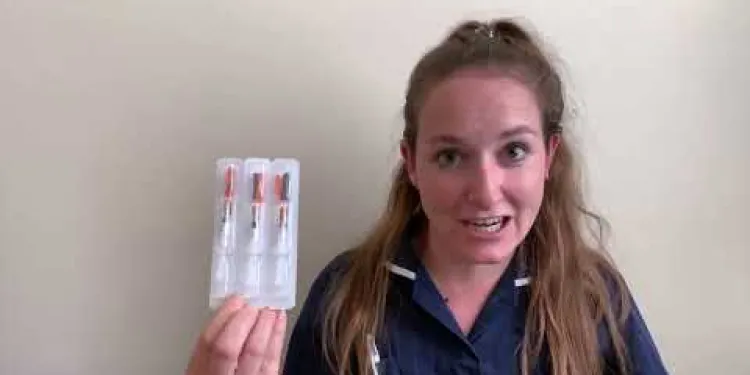
Bariatric Surgery - What to expect when you come to hospital for your operation.
Relevance: 64%
-
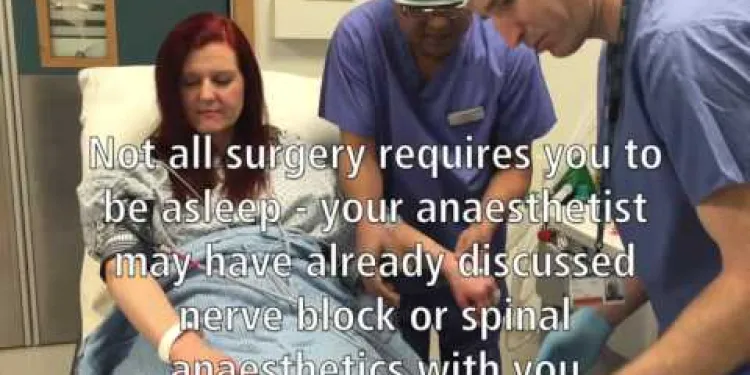
Your Operation at East Surrey Hospital
Relevance: 57%
-

What factors affect the waiting time for my surgery?
Relevance: 57%
-

Are waiting times for operations the same across all hospitals?
Relevance: 54%
-
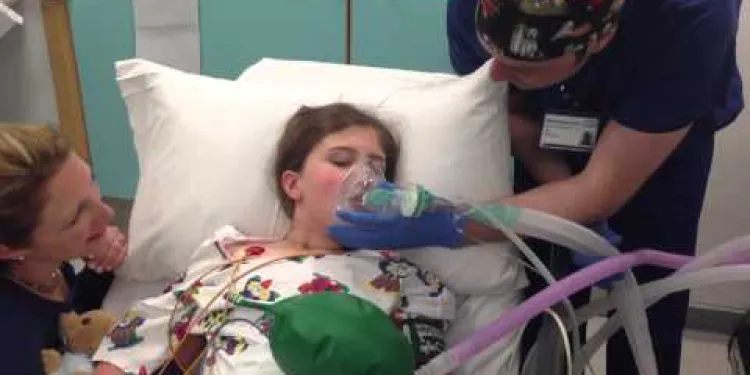
My General Anaesthetic: What's Going To Happen? Sarah's Story at Worcestershire Royal Hospital.
Relevance: 50%
-
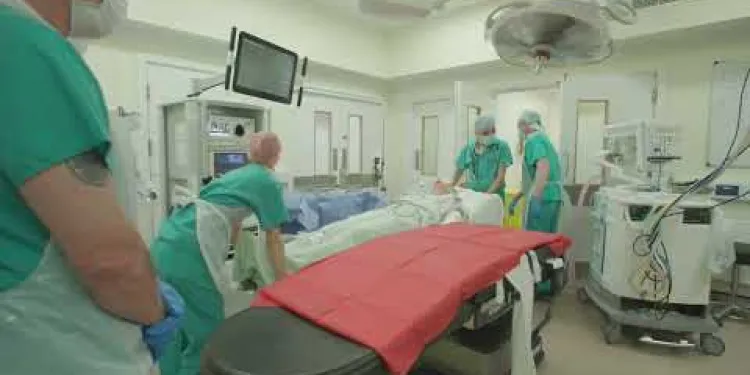
Prostate Surgery
Relevance: 49%
-

How long does a hip replacement surgery take?
Relevance: 48%
-
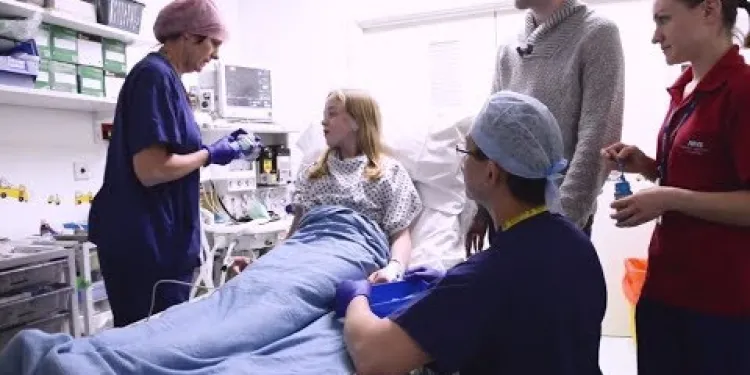
Having an operation in Oxford Children's Hospital with YiPpEe
Relevance: 47%
-

How much does hip replacement surgery cost in the UK?
Relevance: 45%
-
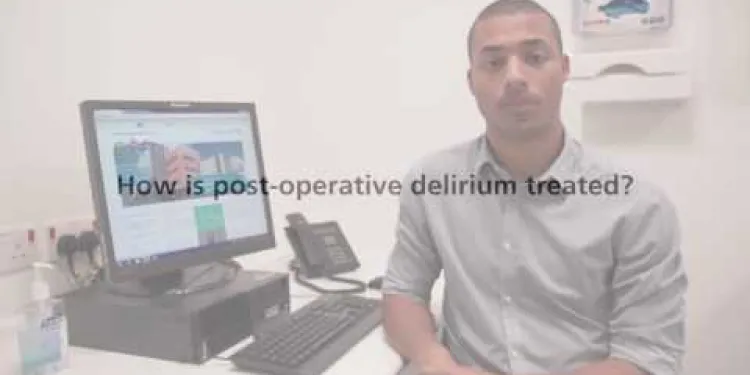
Experiencing delirium after surgery
Relevance: 45%
-
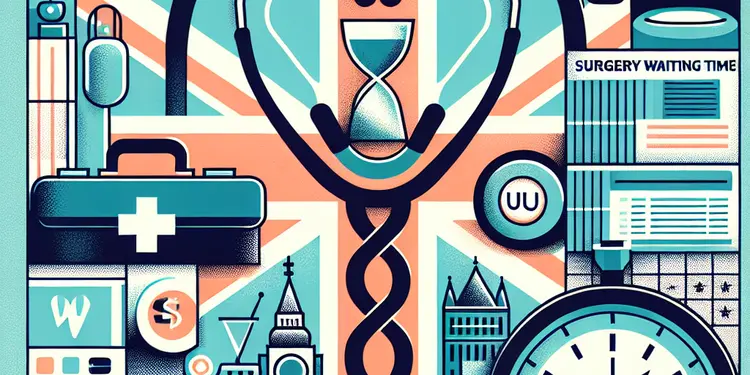
Who should I contact for questions about surgery waiting times?
Relevance: 44%
-

How do AI-assisted robotic systems enhance lung cancer surgeries?
Relevance: 44%
-
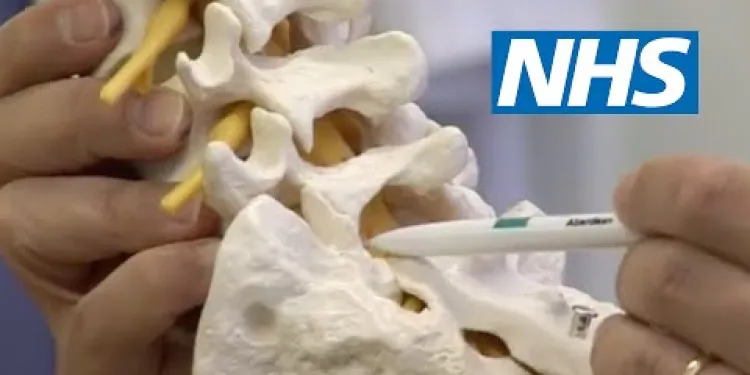
Lumbar surgery | NHS
Relevance: 44%
-

Inpatient Surgery at North Bristol NHS Trust
Relevance: 42%
-

How do I prepare for hip replacement surgery?
Relevance: 42%
-

Delirium: A Patient Story at Leicester's Hospitals
Relevance: 42%
-

Is there a national database for checking waiting times for surgeries?
Relevance: 42%
-
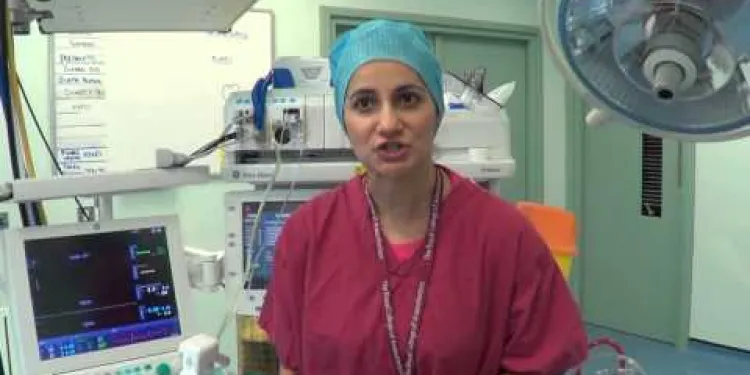
Enhanced Recovery After Surgery in Forth Valley
Relevance: 42%
-

How does surgery treat prostate cancer?
Relevance: 41%
-

How can I advocate for a shorter wait time for my surgery?
Relevance: 41%
-

Evidence-Based Interventions: haemorrhoid surgery
Relevance: 40%
-

Do private hospitals have shorter waiting times for operations?
Relevance: 40%
-

On the day of your cataract surgery
Relevance: 39%
-

How long will I stay in hospital after a C-section?
Relevance: 39%
-
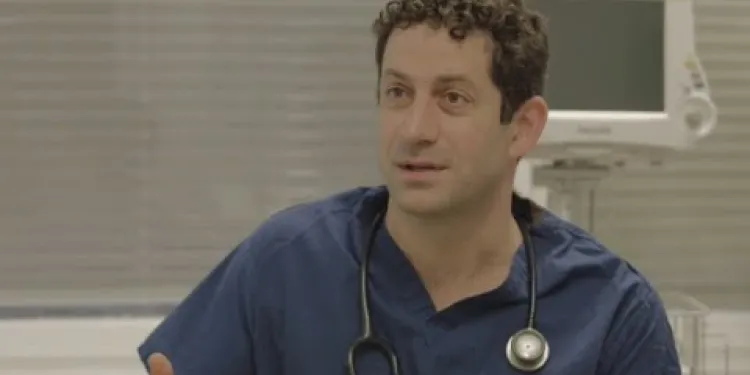
What to expect on the day of your operation
Relevance: 39%
-

Will changing my surgery date impact my waiting time?
Relevance: 38%
-

Weight Loss Surgery
Relevance: 38%
-

Will language barriers be an issue in EU hospitals?
Relevance: 38%
-
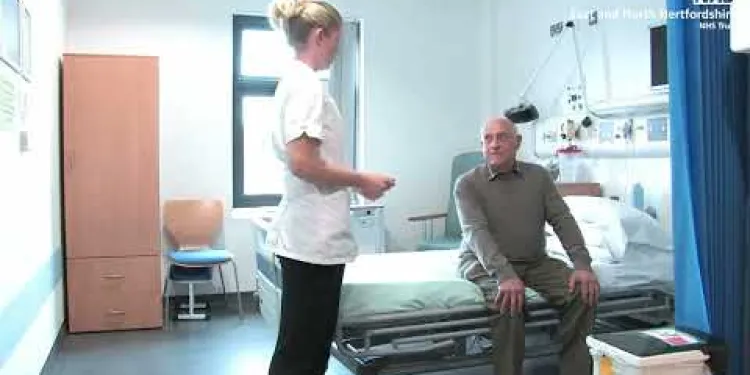
A journey to hip surgery
Relevance: 38%
-

How do I know if my surgery is considered elective or urgent?
Relevance: 37%
-
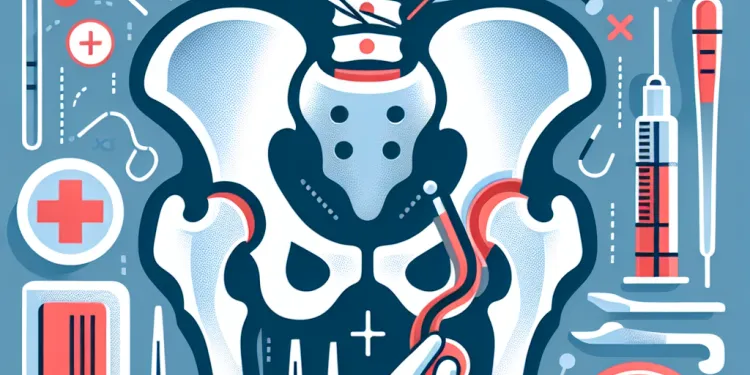
What is minimally invasive hip replacement surgery?
Relevance: 37%
-

Thyroid eye disease. Squint surgery - The operation
Relevance: 37%
-

Is surgery always required to treat flesh-eating disease?
Relevance: 37%
-

What are the side effects of prostate cancer surgery?
Relevance: 37%
-
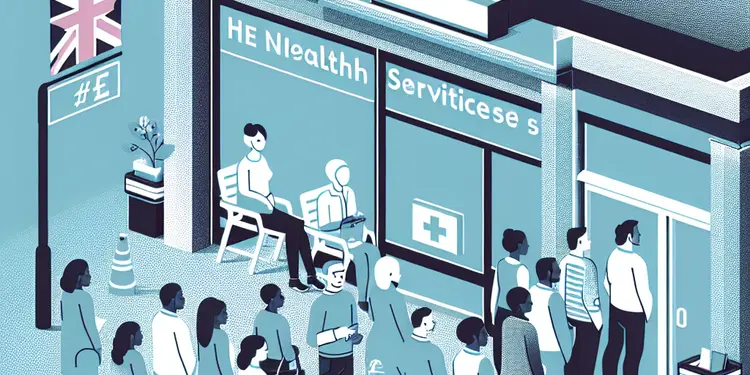
How can I find current waiting times for operations in my local hospital?
Relevance: 36%
-

Is surgery necessary for Crohn's disease?
Relevance: 36%
What to Expect When Visiting Our Hospitals for Surgery | Theatres
Pre-Surgery Preparation
Before your scheduled surgery, you will likely have a pre-operative assessment. This could involve blood tests, ECGs, and a detailed discussion about your medical history. You might also meet with your surgeon and anesthetist to review the procedure and any special instructions. It's important to follow guidelines for fasting and medication intake as advised to ensure your safety during surgery.Admission and Check-In
On the day of your surgery, you will check in at the hospital's admissions area. You will need to bring essential documents, such as your ID, surgery consent forms, and any relevant medical records. A nurse will then guide you to the pre-operative area where you will change into a hospital gown and have your vital signs monitored.Operating Theatre Environment
The operating theatre is a sterile environment equipped with advanced surgical instruments and monitoring equipment. You will be greeted by the surgical team, including your surgeon, anaesthetist, and nurses. Each member is highly trained to ensure your surgery is as safe and efficient as possible. You will be given anaesthesia appropriate for your procedure, ranging from local to general anaesthesia.Post-Surgery Recovery
After your surgery is completed, you will be moved to a recovery room where nurses will monitor your vital signs until the anaesthesia wears off. Pain management will be provided to ensure your comfort. Once you are stable, you will be either discharged with post-operative care instructions or moved to a ward for further observation, depending on the complexity of your surgery.Discharge and Follow-Up
Before you leave the hospital, you will receive detailed instructions on how to care for yourself at home. This may include information on wound care, medication schedules, and activities to avoid. You will also be given contact information for any follow-up appointments. It’s vital to adhere to these guidelines to ensure a smooth recovery.Additional Considerations
Visitors are generally allowed but may be restricted based on the hospital's policies or current health guidelines. Please check beforehand. The hospital staff are always available to answer any questions or address concerns you might have before, during, and after your surgery. This HTML provides a well-structured and informative overview of what patients in the UK can expect when visiting hospitals for surgery, covering pre-surgery preparation, admission, the operating theatre environment, post-surgery recovery, discharge, and additional considerations.What to Expect When Visiting Our Hospitals for Surgery | Theatres
Getting Ready Before Surgery
Before your surgery day, you will have a check-up. This may include blood tests and heart checks. You will talk about your health history. You might also meet your doctor and the person who will help you sleep during surgery. Listen carefully to any rules like not eating before surgery. This helps keep you safe.Checking In on Surgery Day
When you arrive at the hospital on your surgery day, go to the admissions area. Bring important papers like your ID and surgery forms. A nurse will help you and give you a hospital gown to wear. They will check things like your heart rate and temperature.Inside the Operating Room
The operating room is very clean and has special tools. You will meet the surgery team, which includes your doctor and nurses. Everyone is trained to keep you safe. You will get medicine to help you sleep or feel no pain.Waking Up After Surgery
After surgery, you go to a recovery room. Nurses will watch you until you wake up properly. If you feel pain, they will give you medicine. Once you feel okay, you might go home or to another room to rest more, depending on your surgery.Going Home and Next Steps
Before you leave the hospital, you will get instructions on looking after yourself. This includes how to care for your wound, when to take medicine, and things you shouldn't do. You will also get information for your next doctor visits. Following these steps helps you get better faster.Things to Keep in Mind
Visitors are usually allowed, but check the rules before they come. Hospital staff can answer any questions you have at any time. They are there to help you before, during, and after your surgery.Frequently Asked Questions
What should I bring with me to the hospital for my surgery?
You should bring any relevant medical documents, a list of your medications, comfortable clothing, personal hygiene items, and any required identification such as your NHS number.
How early should I arrive before my scheduled surgery time?
We recommend arriving at least 2 hours before your scheduled surgery time to allow for registration, pre-operative checks, and preparation.
Will I be able to eat or drink before my surgery?
You will usually be advised to refrain from eating and drinking for a certain period before your surgery. Your healthcare team will provide specific instructions based on your procedure.
Can I bring someone with me on the day of surgery?
Yes, you can bring a friend or family member with you for support. However, due to hospital policies and safety protocols, they may not be able to accompany you into certain areas such as the operating room.
What should I do if I am not feeling well on the day of my surgery?
If you are experiencing symptoms such as fever, cold, or any illness on the day of your surgery, please contact the hospital as soon as possible for guidance.
How will my pain be managed after the surgery?
Pain management strategies will be discussed with you before your surgery. These may include medications, physical therapy, or other methods to ensure your comfort post-operatively.
What are the COVID-19 protocols in place at the hospital?
Our hospital follows strict COVID-19 protocols, including mandatory mask-wearing, social distancing, regular sanitization, and screening procedures to ensure patient and staff safety.
How long will I need to stay in the hospital after my surgery?
The length of your hospital stay will depend on the type of surgery, your overall health, and your recovery progress. Your surgeon will provide an estimated timeframe for your stay.
Will I need someone to drive me home after my surgery?
Yes, it is generally recommended to arrange for someone to drive you home after surgery, especially if you have undergone general anesthesia or sedation.
What should I do if I experience complications after my surgery?
If you experience any concerning symptoms or complications after your surgery, contact your healthcare provider or the hospital immediately for assistance.
How can I prepare my home for recovery before surgery?
Preparing your home for recovery may include setting up a comfortable resting area, arranging for help with daily tasks, stocking up on essential supplies, and removing any potential hazards.
Will I have follow-up appointments after my surgery?
Yes, follow-up appointments will be scheduled to monitor your recovery and address any concerns. Your healthcare team will provide details about these appointments before you leave the hospital.
Can I continue to take my regular medications before surgery?
You should inform your healthcare team about all the medications you are taking. They will provide specific instructions on which medications to continue or pause before your surgery.
What kind of anesthesia will be used for my surgery?
The type of anesthesia used will depend on the procedure and your medical history. This will be discussed with you during your pre-operative assessment.
How can I contact the hospital if I have questions before my surgery?
You can contact the hospital by calling the provided phone number or using other contact methods listed on your appointment letter or the hospital’s website.
What do I need to take to the hospital for my operation?
Here is a list of things you might want to take:
- Your PJs, slippers, and a dressing gown.
- A toothbrush, toothpaste, and other toiletries like soap or shampoo.
- A book or a toy to keep yourself busy.
- Your favorite snacks or drinks.
- Things that help you relax, like music or a stuffed animal.
- Phone and charger to call your family or friends.
Ask someone you trust to help you pack a bag before you go. You can write a checklist to make sure you remember everything. A family member or friend can remind you if you forget something.
Bring these things with you:
- Papers about your health.
- A list of your medicines.
- Clothes that are comfy.
- Things to keep clean like a toothbrush and soap.
- Your ID, like your NHS number.
If you need help to remember, you can:
- Use a checklist.
- Ask someone to remind you.
- Set a reminder on your phone.
When should I get to the hospital before my surgery?
Get to the hospital 2 hours before your surgery time. This gives you lots of time to check in and get ready.
To help you remember:
- Write the time down.
- Set an alarm.
Please try to get to the hospital at least 2 hours before your surgery. This gives you enough time to check in, have any necessary tests, and get ready for the operation.
Can I eat or drink before my surgery?
It is important to know if you can eat or drink before your surgery. Usually, doctors say not to eat or drink anything before surgery. This is to keep you safe.
If you are not sure, ask your doctor or nurse. They can help you understand what to do.
If you find reading difficult, ask someone you trust to help explain things. You can also use apps or tools that read text out loud to you.
Your doctor will tell you not to eat or drink for a while before your surgery. This is important. Your doctor will tell you the rules you need to know.
Can I bring someone with me on the day of surgery?
Yes, you can bring someone with you when you go for surgery. It can be a friend or family member. They can help you feel better and stay calm. Make sure to ask the doctor or nurse if they can stay with you the whole time.
Here are some ways they can help you:
- They can listen to what the doctor says.
- They can remind you to ask questions.
- They can help you get home safely.
If you feel scared, tell your friend. They can help you feel brave. It's good to have someone you trust with you.
You can bring a friend or family member with you to help you feel better. But remember, the hospital has rules for safety. Your friend might not go with you into some places, like the room where they do your surgery.
Here are some helpful tips:
- Ask your friend to wait for you in the waiting area.
- Bring things that make you feel calm, like a book or toy.
- Talk to your doctor if you have questions.
What to Do If You Feel Sick on the Day of Your Surgery
If you feel sick or unwell on the day you have surgery, tell a grown-up.
Ask someone to call the doctor or hospital. They will tell you what to do.
It is important to get help so you can feel better soon.
Use a calendar or chart to remember important dates.
If you feel sick with things like a fever or cold on the day of your surgery, call the hospital right away for help.
What will happen with my pain after the surgery?
After your surgery, doctors and nurses will help you feel better. They will give you medicine so it does not hurt too much.
Here are some ways to manage pain:
- Take pain medicine when you need it.
- Rest and sleep to help your body heal.
- Tell your doctor or nurse if it still hurts a lot.
Using these tools and techniques can help you feel better faster.
Before your surgery, we will talk about how to help you feel comfortable. We might give you medicine, help you with gentle exercises, or use other ways to help manage pain.
What are the COVID-19 rules at the hospital?
Here are the steps the hospital is taking to keep everyone safe:
- Wear a mask. This keeps germs away.
- Wash your hands often. Use soap and water.
- Stay apart from others. Keep a safe distance.
- Look for signs to help you follow the rules.
- Use hand sanitizer if there is no soap.
If you find it hard to remember these steps, ask a helper. They can remind you what to do.
At our hospital, we have rules to keep everyone safe from COVID-19. Everyone must wear a mask. We keep distance from each other. We clean a lot. We check people for signs of being sick.
How long will I stay in the hospital after my surgery?
After your surgery, you might need to stay in the hospital. This helps doctors and nurses take care of you.
Everyone's stay is different. It depends on the type of surgery and how you are feeling.
Sometimes it's just one night. Other times, it can be a few days.
Ask your doctor or nurse. They can tell you how long you might stay.
It can help to bring things you like, such as books or a toy, to feel more at home.
How long you stay in the hospital depends on a few things:
- What kind of surgery you have
- How healthy you are
- How well you are getting better
Your doctor will tell you how long they think you will stay.
It can help to have someone with you to remember what the doctor says.
You can also write notes to help you remember.
Do I need help to get home after my operation?
Yes, you will need someone to drive you home after your operation. It is not safe for you to drive yourself.
You can ask a friend or family member to help you. If needed, you can also use a taxi or a hospital transport service.
Yes, it is a good idea to have someone drive you home after surgery, especially if you were asleep or felt sleepy from medicine.
What should I do if I have problems after my surgery?
If you feel unwell after your surgery, here are some steps you can take:
- Tell a grown-up or a friend that you are not feeling well.
- Call your doctor or nurse to talk about how you feel.
- If it's an emergency, call the emergency number in your area or go to the hospital.
It might help to use a notebook to write down how you feel each day. This can help you remember when you speak to your doctor.
Ask someone to go with you to the doctor. They can help you understand what is happening.
If you feel unwell or have problems after your surgery, call your doctor or the hospital right away for help.
Getting Your Home Ready Before Surgery
Getting your home ready for when you are recovering means doing a few things. Make a nice place where you can rest. Ask someone to help you with jobs around the house. Buy things you really need, like food and medicines. Move things that might make you trip and fall.
Will I see the doctor again after my surgery?
Yes, you will have more appointments to help you get better and talk about any worries you have. Your doctors and nurses will tell you about these appointments before you go home.
Can I keep taking my usual medicines before my surgery?
Tell your doctor or nurse about all the medicines you take. They will tell you which medicines you should keep taking and which ones to stop before your surgery.
What type of medicine will make me sleep during my surgery?
The kind of medicine that makes you sleep during the surgery (anesthesia) depends on what kind of surgery you are having and your health history.
The doctor will talk to you about this before your surgery.
How do I talk to the hospital before my surgery?
If you have questions before your surgery, you can call the hospital. Ask an adult to help you if you need it. You can also: - Write down your questions so you don't forget. - Have a family member go with you to talk to the hospital. - Use your phone to make notes.
You can talk to the hospital by calling the phone number they give you. You can also find other ways to talk to them on your appointment letter or on the hospital’s website.
Useful Links
This website offers general information and is not a substitute for professional advice.
Always seek guidance from qualified professionals.
If you have any medical concerns or need urgent help, contact a healthcare professional or emergency services immediately.
- Ergsy carfully checks the information in the videos we provide here.
- Videos shown by Youtube after a video has completed, have NOT been reviewed by ERGSY.
- To view, click the arrow in centre of video.
- Most of the videos you find here will have subtitles and/or closed captions available.
- You may need to turn these on, and choose your preferred language.
- Go to the video you'd like to watch.
- If closed captions (CC) are available, settings will be visible on the bottom right of the video player.
- To turn on Captions, click settings .
- To turn off Captions, click settings again.
More Items From Ergsy search
-

What to expect when visiting our hospitals for surgery | Theatres
Relevance: 100%
-

What to expect when visiting our hospitals for surgery | Theatres
Relevance: 99%
-

What to expect when visiting our hospitals for surgery | Theatres
Relevance: 97%
-

Undergoing day case surgery at University Hospitals Bristol
Relevance: 69%
-

Bariatric Surgery - What to expect when you come to hospital for your operation.
Relevance: 64%
-

Your Operation at East Surrey Hospital
Relevance: 57%
-

What factors affect the waiting time for my surgery?
Relevance: 57%
-

Are waiting times for operations the same across all hospitals?
Relevance: 54%
-

My General Anaesthetic: What's Going To Happen? Sarah's Story at Worcestershire Royal Hospital.
Relevance: 50%
-

Prostate Surgery
Relevance: 49%
-

How long does a hip replacement surgery take?
Relevance: 48%
-

Having an operation in Oxford Children's Hospital with YiPpEe
Relevance: 47%
-

How much does hip replacement surgery cost in the UK?
Relevance: 45%
-

Experiencing delirium after surgery
Relevance: 45%
-

Who should I contact for questions about surgery waiting times?
Relevance: 44%
-

How do AI-assisted robotic systems enhance lung cancer surgeries?
Relevance: 44%
-

Lumbar surgery | NHS
Relevance: 44%
-

Inpatient Surgery at North Bristol NHS Trust
Relevance: 42%
-

How do I prepare for hip replacement surgery?
Relevance: 42%
-

Delirium: A Patient Story at Leicester's Hospitals
Relevance: 42%
-

Is there a national database for checking waiting times for surgeries?
Relevance: 42%
-

Enhanced Recovery After Surgery in Forth Valley
Relevance: 42%
-

How does surgery treat prostate cancer?
Relevance: 41%
-

How can I advocate for a shorter wait time for my surgery?
Relevance: 41%
-

Evidence-Based Interventions: haemorrhoid surgery
Relevance: 40%
-

Do private hospitals have shorter waiting times for operations?
Relevance: 40%
-

On the day of your cataract surgery
Relevance: 39%
-

How long will I stay in hospital after a C-section?
Relevance: 39%
-

What to expect on the day of your operation
Relevance: 39%
-

Will changing my surgery date impact my waiting time?
Relevance: 38%
-

Weight Loss Surgery
Relevance: 38%
-

Will language barriers be an issue in EU hospitals?
Relevance: 38%
-

A journey to hip surgery
Relevance: 38%
-

How do I know if my surgery is considered elective or urgent?
Relevance: 37%
-

What is minimally invasive hip replacement surgery?
Relevance: 37%
-

Thyroid eye disease. Squint surgery - The operation
Relevance: 37%
-

Is surgery always required to treat flesh-eating disease?
Relevance: 37%
-

What are the side effects of prostate cancer surgery?
Relevance: 37%
-

How can I find current waiting times for operations in my local hospital?
Relevance: 36%
-

Is surgery necessary for Crohn's disease?
Relevance: 36%


